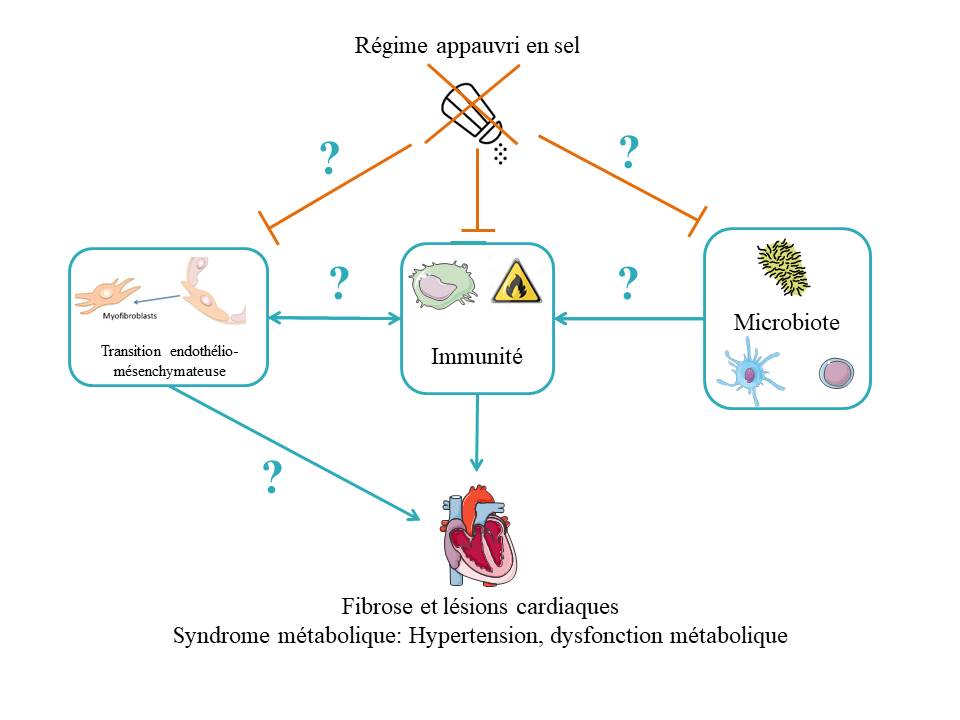Mechanisms involved in the prevention of cardiac fibrosis by a salt-depleted diet during metabolic syndrome.
Project funded in 2018 by the French Nutrition Society (20,000 euros) and by the Fondation de l'Avenir en 2022 (36,000 euros).
Metabolic syndrome is characterized by a clustering of at least 3 factors, including abdominal obesity, dyslipidemias, elevated blood pressure and glucose intolerance, predisposing to cardiovascular and metabolic diseases. Our team is addressing the metabolic and cardiovascular/renal consequences of metabolic syndrome using a rat model fed a fructose-enriched diet (Oudot et al., Kidney Int, 2013; Rugale et al., Ann Cardiol Angéiologie, 2013). When this diet is combined with angiotensin II infusion, the animals develop insulin resistance and hypertension, close to the metabolic syndrome in humans, with the development of cardiac fibrosis (Jover et al., Biochim Biophys Acta, 2017), responsible for diastolic dysfunction. Interestingly, these abnormalities can be prevented when sodium is completely removed from the animals' diet to give a strict de-sodium diet.
Our aim is to study the mechanisms involved in the prevention of cardiac fibrosis during metabolic syndrome by the de-sodulated diet, in order to open up new therapeutic and/or diagnostic avenues for better management of the cardiac dysfunctions that result from this fibrosis. We had already identified innate immunity as being modulated in this model. We are now exploring two new avenues: the involvement of adaptive immunity and the intestinal microbiota, and the involvement of the endothelial-mesenchymal transition. In particular, we are studying proteins newly identified in the laboratory as potential targets for cardiac fibrosis.
People involved in the project :
- Caroline Desmetz, MCU (project manager)
- Anne-DominiqueLajoix, PU
- Solène Darlet, Research Technician
- Mohammed Mimouni, Doctoral student
